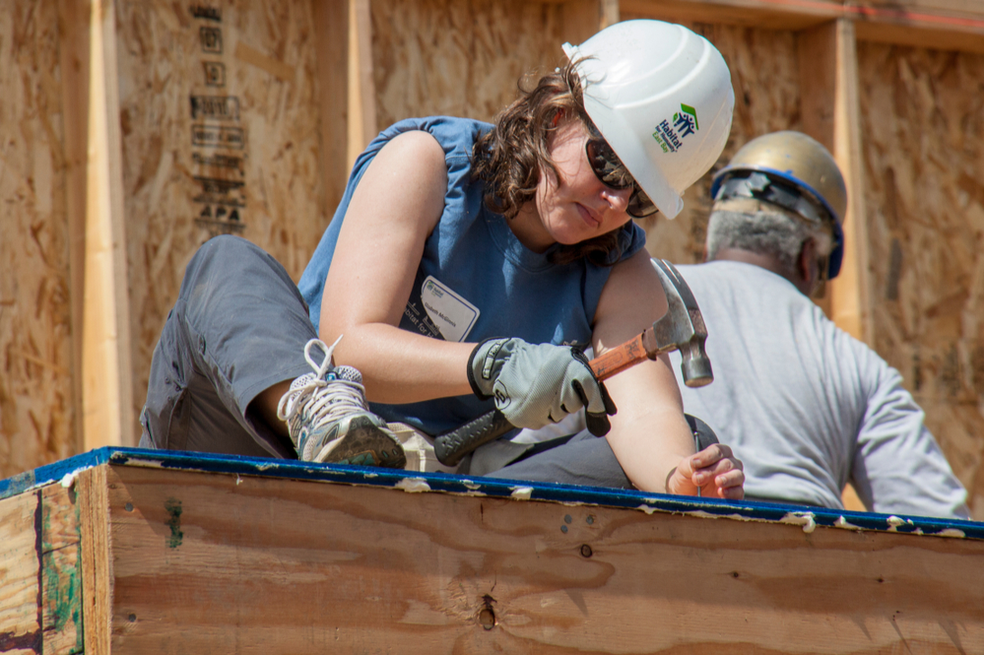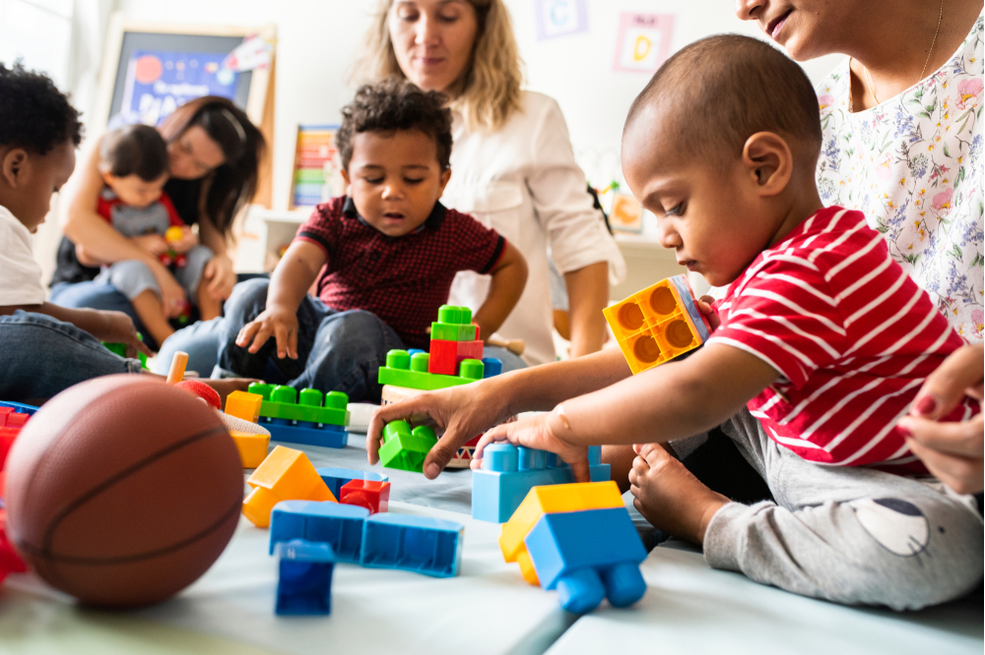Planet Word: A Philanthropist’s Mission to Build a Museum of Language
/Olivier Le Moal/shutterstock
Philanthropist and language aficionado Ann Friedman’s dream to create Planet Word, an interactive, multimedia museum “dedicated to the power of language and how words shape the human experience,” is becoming a reality. Design and building processes have begun at the historic Franklin School on Franklin Square, and D.C.’s newest museum is set to open in early 2020. A capital campaign with a goal of raising $35 million is in progress, and Friedman is also committed to contributing $25 million of her own money to the project. Fundraising for a new high-tech, linguistic-focused museum is a unique project, so we caught up with Friedman to ask about her experience, as well as her vision for the museum.
Friedman has raised much of the money so far through networking and direct appeals, and says the concept for a language museum is contagious. “You can tell, you know—if I ask someone and they get it, they understand what I'm trying to do, or they just love words and language, their eyes light up. And they are like, what can I do for you?”
Who is Ann Friedman?
Ann Friedman is a former public school reading teacher, magazine copy editor and translator who has studied Spanish, Italian, French, Hebrew and colloquial spoken Arabic. She is the former chair and current vice chair of the board of the SEED Foundation, the parent organization of the only public, inner-city, college-prep boarding schools in the U.S. Friedman is also a director of the Aspen Institute, the Aspen Music Festival and the National Symphony Orchestra and a former board member at WETA, where she and her husband, New York Times foreign affairs columnist and multi-Pulitzer-winner Thomas L. Friedman, were founding donors to AdLit.org, a website focused on adolescent literacy.
Friedman says her board experiences, through which she became more versed in leadership, coordinating and running meetings, hiring, compensation reviews, branding exercises and more, prepared her to launch the nonprofit undertaking of Planet Word and carry it to fruition.
Her own wealth stems from her family’s success in real estate—her father and uncle, Matthew and Martin Bucksbaum, opened their first shopping center in the 1950s—an undertaking that would grow into the real-estate investment trust giant, General Growth Properties. Her brother is also a philanthropist, John Bucksbaum of the Jacolyn and John Bucksbaum Foundation, with independent philanthropic pursuits relating to education and youth, Jewish causes, arts and culture, and other issues.
Friedman’s myriad experiences with language, along with the U.S.’s less-than-stellar reading performance and habits, were some of the main inspirations for the museum. The Planet Word webpage points out that 21 percent of adults in America read below a fifth-grade level, and 31 percent of fourth graders don’t perform at a “basic level on national reading tests.” (To learn more about philanthropy that relates to reading and language education, visit Inside Philanthropy’s collection of articles on funding for literacy and libraries.)
Friedman also considers literacy as essential to a functioning democracy, and sees her philanthropy as tied to a love of country, in line with the philosophy of David Rubenstein, whom she cites as an inspiration. He’s another major philanthropist in D.C. who is known for espousing patriotic philanthropy. Rubenstein is a Giving Pledge signatory who has supported many historic and culturally rich national establishments, such as the John F. Kennedy Center for the Performing Arts, Smithsonian Institution, Washington Monument and National Zoo.
Friedman says she asked herself, “What could I do to create community, to do something for a country that's been so good to me?” She also mentions Abe and Irene Pollin as role models. The late Washington Wizards owner and his wife were behind the establishment of the Capital One Arena downtown, as well as the restoration and reinvention of the Sixth & I synagogue.
Funding Friedman’s Vision for a Museum of Words
So how did Friedman go about raising money for a language museum when it was only in a dream state?
“I've gone to people I know, a lot of friends and people who I think have an innate interest in literacy, in historic renovation, in museums, literacy building, building community—all of the goals I have for Planet Word… I have a really strong group of donors, and I've raised about a little over $11 million so far.”
That $11 million is earmarked for exhibit development and installation costs, and the project is looking for $4 million more in this arena. In addition, Friedman says she “would like to raise $20 million toward a long-term endowment or reserve fund.” Her $25 million funds the cost of the restoration and rehabilitation of the historic Franklin School property, which turns 150 in 2019. Friedman has already secured seven-figure gifts from Mike and Jackie Bezos, John and Ann Doerr, the Bloomberg Philanthropies, and the Diller-von Furstenberg Family Foundation, among others.
The Planet Word board, of which Friedman is the chair (as well as founder and CEO) is made up of experts and leaders from literacy and museum education, teacher training, global investment, nonprofit management, communications and marketing, and journalism—including her husband. The advisory board is also diverse, and includes authors, professors, linguistic experts, museum directors, singer Paul Simon and New York Times crossword puzzle editor Will Shortz.
The museum will be interactive, and while it’s not the only museum dedicated to language—there are also institutions in Maryland, Toronto, the U.K. and elsewhere—Friedman says it will be the first to be largely voice-activated. Wordplay will be integrated everywhere, from the physical space to the menu in the cafe, and the website highlights features like a language lab and an auditorium for spoken-word poets, author readings and classes on songwriting, storytelling or sign language.
“Identify accents, tell us how you say soda and hoagie, learn tips from professional dialect coaches, and climb a Tower of Babel or tunnel through a prepositional playground,” the website offers. Friedman and her team have enlisted licensing experts so they can fill the galleries with great poems, songs, jokes, speeches and literature, and are hiring native speakers to be “ambassadors” for their languages in a “Spoken World” gallery. The museum is intended for readers and learners of all ages and levels, including those who do not speak English as a first language, and admission will be free.
“No one will ever have seen a museum like this,” Friedman says.
The museum site says, “Language is what makes us human… At Planet Word, we inspire and renew a love of words and language through unique, immersive learning experiences.”
Planet Word Takes Shape
According to a recent blog post on the museum’s construction, new library shelves and a 1200-word, 22-foot-high, three-dimensional word wall in a “Where Do Words Come From?” gallery are currently under construction. While things are moving along steadily now, there have been a few building challenges along the way, tied to the fact that the Franklin School is a National Historic Landmark; both its interior and exterior are subject to preservation regulations. In September 2018, a stop order was issued by the city after inspectors discovered that construction crews had removed elements of the school’s interiors without permission, but the work resumed in December with an agreement to restore parts of what was lost.
“I sincerely regret that unpermitted work occurred, and am committed to ensuring that these mistakes aren’t repeated,” Friedman said in a statement at the time. She tells us the preservation status is “not a problem,” but just “one more layer of approval that we have to get” during renovations. She says no other significant mistakes or challenges have arisen, though they have discovered mysterious voids in the brick walls that must be dealt with appropriately.
The Franklin School was D.C.’s first high school, and one of the nation’s earliest co-ed high schools. It has housed public school administrative offices and an adult education center. Fittingly, Planet Word will include a replica of an original 1869 classroom. The building also served as a homeless shelter from 2002 to 2008, and was a hub for Occupy Wall Street demonstrations in 2011; it has been empty since then. It was briefly slated to be a contemporary art museum before Friedman’s plan was approved. The building’s original architect was Adolf Cluss, who also designed several buildings for the Smithsonian. The Franklin School sits at the end of a large federal park, Franklin Square, which is currently being transferred to the city. Friedman says the park will be renovated in the fall of 2019, and that this transformation will coincide nicely with the museum’s opening soon thereafter.
Planet Word is opening a new fourth floor on the school, with access to the roof terrace where Alexander Graham Bell sent the first photo phone message in 1880. This is a historic moment for the school that Friedman finds especially exciting. The photo phone produced the first message transmitted with light waves, the precursor to today’s fiber-optic communications, and was considered by Bell to be his most important accomplishment.
“When you read his words about it in 1880, he talked about people on ships being able to communicate with each other with no wires—it was just amazing how prescient he was, and how right,” Friedman says. “And so that happened right here in the Franklin school… you've got the history of telecommunications represented, along with education and literacy, to be the home of Planet Word. It couldn't be more perfect.”
We’ll keep an eye on the fundraising campaign for the language museum and its slated opening in 2020.




































